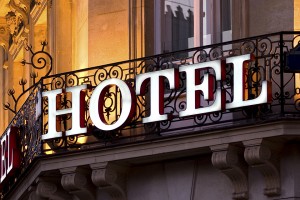Hotels that build an emotional attachment with potential visitors in their marketing are more likely to attract them back than by promoting their post Covid-19 cleanliness, research by UWE Bristol academics has found.
Their study, which also involved researchers from two other universities, showed that crisis communications emphasising shared emotional responses to risks enabled tourists to ‘humanise’ the hotel. 
This led to them subsequently creating an emotional attachment with the venue and increasing the likelihood they would visit once the crisis ends.
The view challenges the approach that dominates many hotels’ Covid-19 communication, which attempts to reassure would-be guests by focusing on their cancellation policy and commitment to cleanliness.
The findings have been released as Bristol’s vital tourism and hospitality industry emerges from more than three months of lockdown. New figures show that nationwide, sales across the hospitality sector plummeted by 87% in the second quarter of 2020, equivalent to almost £30bn in lost revenue.
The latest UKHospitality Tracker, collated by CGA sales, shows between April and June revenues totalled £4.6bn, down from £34.2bn in the same period last year.
As a result, thousands of hotel jobs are be at risk across the UK, with major chains such as Marriott, Millennium and InterContinental Hotels Group (IHG) announcing recently they are looking to cut staffing levels.
Researchers from the UWE Bristol, along with colleagues from the University of Bath and the University of East Anglia said large hotel groups such as Four Seasons and Hilton emphasised publicly their commitment to cleanliness to reduce tourist’s perceptions of the risk to health.
But this approach only focused on cognitive – or rational – aspects of risk perceptions and ignores emotional responses to risks.
Their findings, published in the Annals of Tourism Research, provide unique insights on the impact of crisis communication during a sustained global crisis such as the coronavirus pandemic. This contrasts with previous research on crisis and disaster management in tourism which mainly focused on recovery after the event.
Dr Haiming Hang, from the University of Bath’s School of Management, said: “During Covid-19, fear and anxiety are the most common emotions among both tourists and the hotel sector. Tourists experience fear and anxiety towards the health risks of Covid-19, while the hotel sector feels fear and anxiety about the uncertainty it faces.”
Dr Lukman Aroean from UEA’s Norwich Business School added that it was understandable that hotels wished to reassure customers about the practical precautions they are taking.
“However, we argue that crisis communication focusing on shared emotions during the current coronavirus pandemic is very important, as it can establish emotional attachment with tourists better than rational statements can. This can be crucial for tourism recovery, because emotional attachment can increase tourists’ intentions to visit when the outbreak ends.
“We show that humanising the brand underlines the impact of shared emotions on emotional attachment and demonstrates the key reason shared emotions can trigger emotional attachment.”
The study involved 405 American tourists whose travel plans were disrupted by the coronavirus pandemic. The research team collected details about their travel plans (purpose and destination), and perceived severity, susceptibility and emotions (fear, anxiety, worry, unease) towards the coronavirus pandemic.
Participants were then randomly allocated to one of the three experimental conditions. In all conditions they were exposed to the same experimental stimulus – a fictitious middle-market international hotel chain – to control participants’ pre-existing knowledge of real hotels.
Participants in the control condition were not exposed to any crisis communication message. In the other two conditions, the hotel’s crisis communication focused on the same areas, commitment to cleanliness and cancelation policy, but they differed on why the hotel wanted to do this.
In the cognitive (rational) condition, consistent with many hotels’ current response, the crisis communication explained the hotel’s commitment to cleanliness was to reduce health risk.
In the shared emotions condition, the crisis communication explained the hotel’s commitment to cleanliness was because it shared the same emotions as tourists: the hotel employees and their families are susceptible to coronavirus just like everyone else.
The uncertainty surrounding the pandemic also makes the hotel anxious and worried because it is hard for them to know how exactly they will be impacted or how bad things might get.
Marriott, which operates two hotels in Bristol, has started consulting UK hotel and head office staff as it seeks to cut around 1,000 jobs from its 5,500-strong UK workforce. Some 26 of its 60 UK hotels have reopened so far.
InterContinental Hotels Group (IHG), which operates five hotels in the Bristol area under its Holiday Inn and Holiday Inn Express brands, also looking to cut 2,100 jobs globally.





























